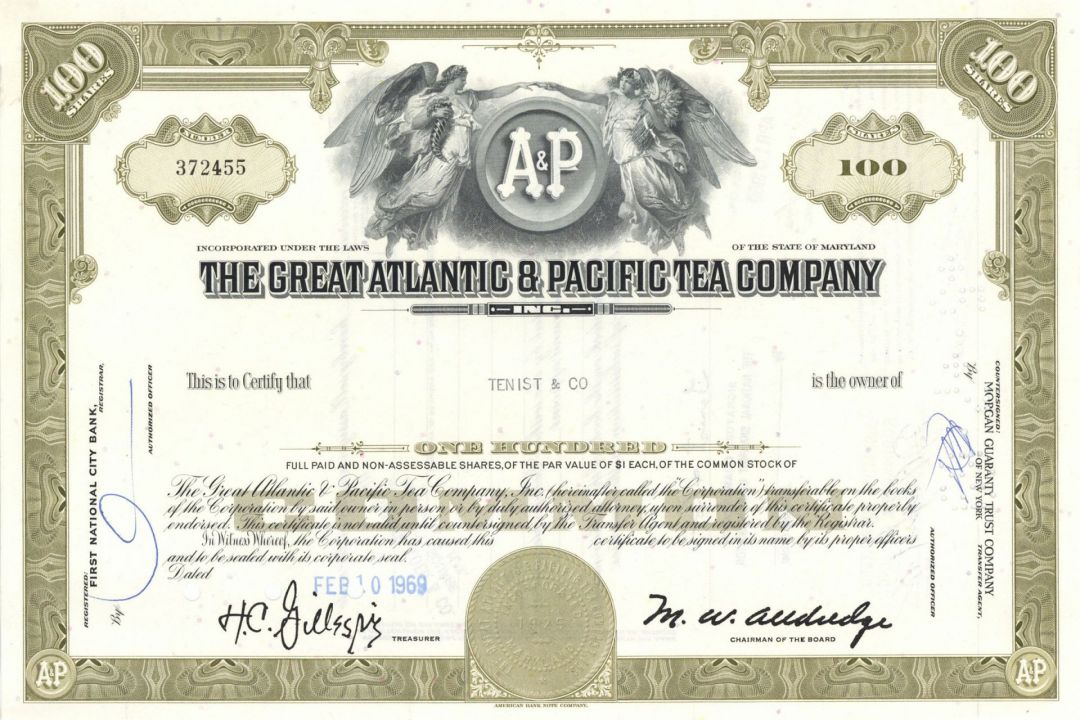Atlantic and Pacific Tea Co. - The Great A & P - 1960's-70's dated Stock Certificate - American Chain of Grocery Stores
Inv# GS1041 StockGeneral Stock printed by American Bank Note Company. Nice vignette of two angels holding hands above A&P symbol. Available in Olive, Blue or Orange. Please specify color.
The Great Atlantic & Pacific Tea Company, commonly known as A&P, was a major American grocery store chain that operated from 1859 to 2015. Between 1915 and 1975, A&P was the largest grocery retailer in the United States and, until 1965, was the largest retailer overall. A&P was a significant American icon, akin to McDonald's or Google in its era, and was often referred to as "the Walmart before Walmart." In the 1940s, A&P controlled 10% of total U.S. grocery spending and was renowned for its innovative approach to offering a diverse range of food products at lower costs, which helped improve nutritional habits. Until 1982, A&P was also a major food manufacturer. John Kenneth Galbraith praised A&P's manufacturing strategy in his 1952 book, "American Capitalism," as a prime example of countervailing power that provided a positive alternative to government price controls.
Founded in 1859 by George Gilman as "Gilman & Company," A&P initially operated as a small chain of tea and coffee stores in New York City, with a national mail order business. By 1878, the company had expanded to 70 stores. Under George Huntington Hartford's management, A&P evolved into the country's first grocery chain. By 1900, A&P was running nearly 200 stores. Hartford’s ownership fueled rapid growth, particularly with the introduction of the economy store concept in 1912, leading to 1,600 stores by 1915. Post-World War I, A&P continued to broaden its offerings, including meat and produce, while also enhancing its food manufacturing operations.
A stock certificate is issued by businesses, usually companies. A stock is part of the permanent finance of a business. Normally, they are never repaid, and the investor can recover his/her money only by selling to another investor. Most stocks, or also called shares, earn dividends, at the business's discretion, depending on how well it has traded. A stockholder or shareholder is a part-owner of the business that issued the stock certificates.











Ebay ID: labarre_galleries